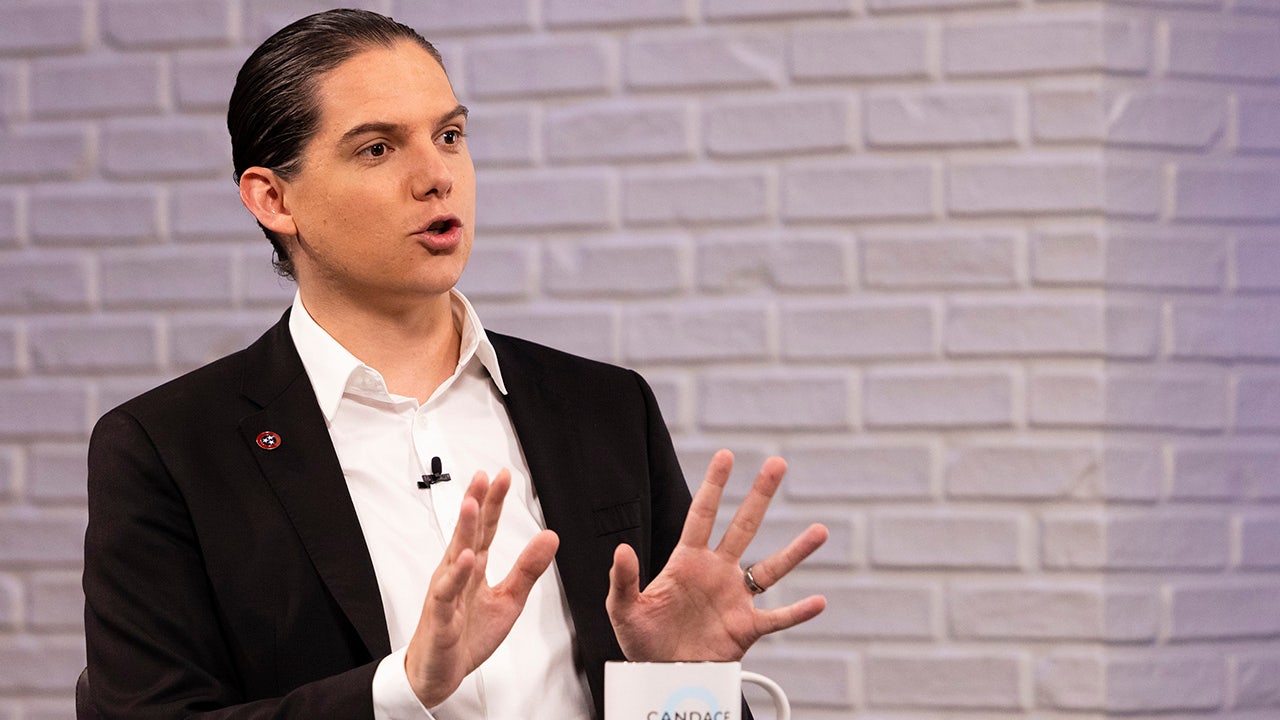Robby Starbuck’s ‘The War on Children’: A Controversial Film’s Journey from Ban to Spotlight
In a world where children’s rights and media ethics are increasingly under scrutiny, Robby Starbuck’s film, The War on Children, has emerged as a polarizing yet crucial piece of work. Initially facing censorship on platforms like Amazon, the film has recently made a significant comeback, igniting debates about the treatment of children in contemporary society. This article explores the tumultuous journey of Starbuck’s film, the controversies surrounding it, and the broader implications for media and children’s rights.
The Premise of ‘The War on Children’
At its core, The War on Children addresses critical issues pertaining to the protection and welfare of children. Robby Starbuck, known for his conservative activism, focuses on the impact of societal changes on the youth. The film delves into various themes, including:
- Parental Rights: The film argues for the importance of parental involvement in children’s upbringing and decision-making.
- Media Influence: It critiques how media and entertainment industries portray children and the potential consequences of these portrayals.
- Education and Indoctrination: Starbuck raises concerns about educational content that he perceives as harmful or misleading.
Through interviews, real-life stories, and expert opinions, the film aims to shed light on the struggles children face today, particularly in the context of changing cultural norms. Starbuck’s approach is both provocative and thought-provoking, making it a potential flashpoint in ongoing discussions about children’s rights.
The Censorship Controversy
Upon its initial release, The War on Children encountered significant backlash. This backlash culminated in its removal from Amazon, a platform that wields considerable influence over film distribution. The reasons cited for this censorship included accusations of spreading misinformation and promoting divisive ideologies. Starbuck has argued that this decision was not just about the film itself but a broader attempt to silence conservative voices in media.
Such censorship raises important questions about freedom of expression and the role of platforms in determining what content is accessible. Critics of the ban argue that it reflects a troubling trend where controversial content, especially that which challenges mainstream narratives, is suppressed. Supporters of the ban contend that it is necessary to protect children from potentially harmful messages.
A Resurgence and Renewed Interest
Despite the initial setback, The War on Children has seen a resurgence. The film’s return to the spotlight can be attributed to various factors:
- Grassroots Movements: Starbuck and his supporters have rallied together, using social media to promote the film and engage audiences.
- Increased Public Discourse: As discussions around children’s rights and media ethics gain traction, the film has found a receptive audience eager to explore these themes.
- Alternative Platforms: The rise of independent streaming services and platforms that champion free speech has allowed the film to reach new viewers unencumbered by the restrictions of larger corporations.
As a result, the film has sparked renewed interest not only in its content but also in the broader implications of media censorship. Viewers are increasingly seeking out films that challenge the status quo, reflecting a desire for diverse perspectives in a polarized media landscape.
Debates on Children’s Rights and Media Ethics
The resurgence of The War on Children has reignited debates surrounding children’s rights. Advocates for children’s welfare argue that the film highlights critical issues that deserve attention, while detractors claim that it simplifies complex problems and promotes a singular viewpoint. Here are some vital points of contention:
Parental Rights vs. State Intervention
One of the film’s central themes is the role of parents versus the state in making decisions about children’s lives. Starbuck posits that parents should have the ultimate authority in determining what is best for their children. This stance has resonated with many who feel that increasing government involvement in education and health decisions undermines parental rights.
However, others argue that state intervention is sometimes necessary to protect children from harmful situations. This tension between parental rights and state responsibility is a crucial aspect of the ongoing debate about children’s welfare.
The Role of Media in Shaping Perceptions
Another contentious topic is the influence of media on children. Starbuck’s film argues that mainstream media often portrays children in a negative light, contributing to societal issues such as bullying, mental health problems, and distorted self-image. Critics contend that while media representation is essential, blaming media alone oversimplifies a complex issue involving family dynamics, peer relationships, and individual choices.
Educational Content and Indoctrination
Starbuck’s criticism of educational materials and curricula has sparked discussions about academic freedom and the content children are exposed to in schools. Proponents of educational reform argue that curricula should reflect diverse perspectives and encourage critical thinking. In contrast, Starbuck and his supporters believe that some educational practices may indoctrinate children rather than educate them.
Conclusion: The Future of ‘The War on Children’
The journey of Robby Starbuck’s The War on Children from censorship to resurgence encapsulates many issues central to contemporary debates about children’s rights and media ethics. As the film continues to garner attention, it serves as a catalyst for discussions that are increasingly relevant in today’s society.
Ultimately, whether one agrees with Starbuck’s viewpoints or not, the film highlights the necessity of engaging in critical conversations about how children are treated and portrayed in our media landscape. As audiences seek out diverse narratives, the importance of films like The War on Children becomes even more pronounced, reminding us that the protection and rights of children must remain at the forefront of societal concerns.
See more CNET Live

